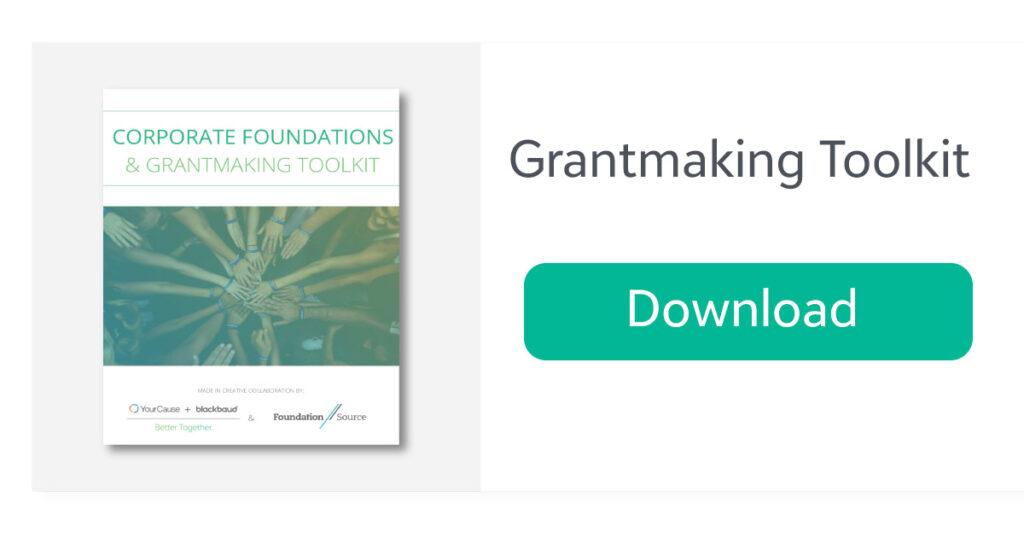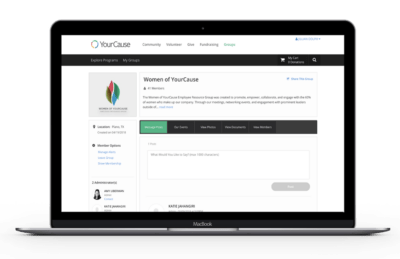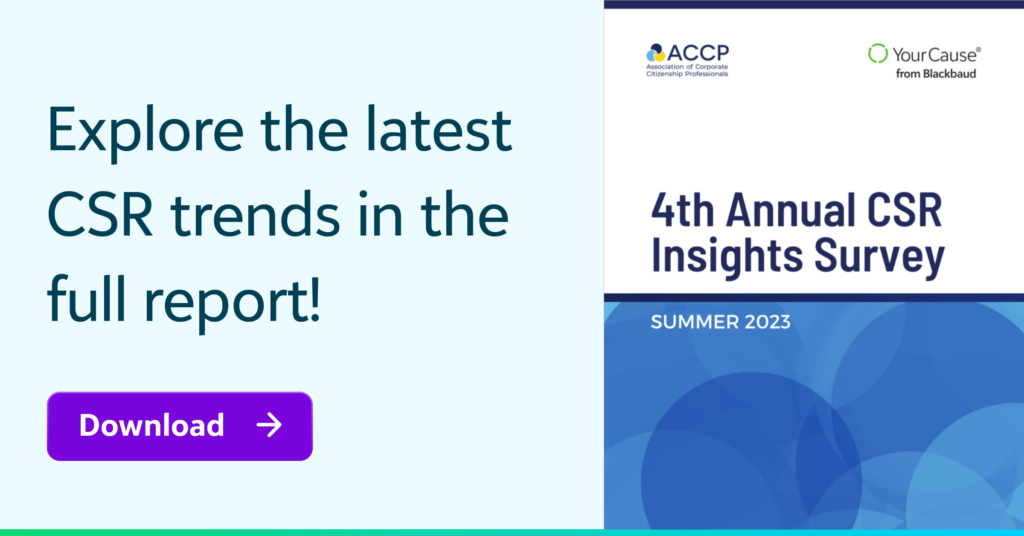Author: Arnav Lahiry
The 4th Annual CSR Insights Survey from ACCP and YourCause sheds light on the evolving trends and challenges faced by professionals in the dynamic social impact landscape. This survey, recently featured in a Forbes article, was conducted in April 2023 and collected responses from 149 companies with a combined community investment exceeding $1 billion.
Below, we explore some of the key findings from this report, covering the increasing strain on social impact practitioners, developments in grantmaking and volunteering, the current top social issues for companies, as well as the state of diversity in corporate responsibility teams and leadership.
Growing Responsibilities and Resource Constraints
While insufficient headcount has been a theme for the last several years, CSR teams have yet to see a growth in size, despite greater relevance of the function in corporations since the pandemic. In fact, 86% of respondents noted increased responsibilities for their teams in the past year, marking a 6% jump from the prior year’s already high figure of 80%. Importantly, 58% of respondents expressed the need for additional resources to fulfill these heightened expectations. This surge in demands has translated into tangible impacts, including extended work hours, burnout, concerns about meeting expectations, and mental health issues.
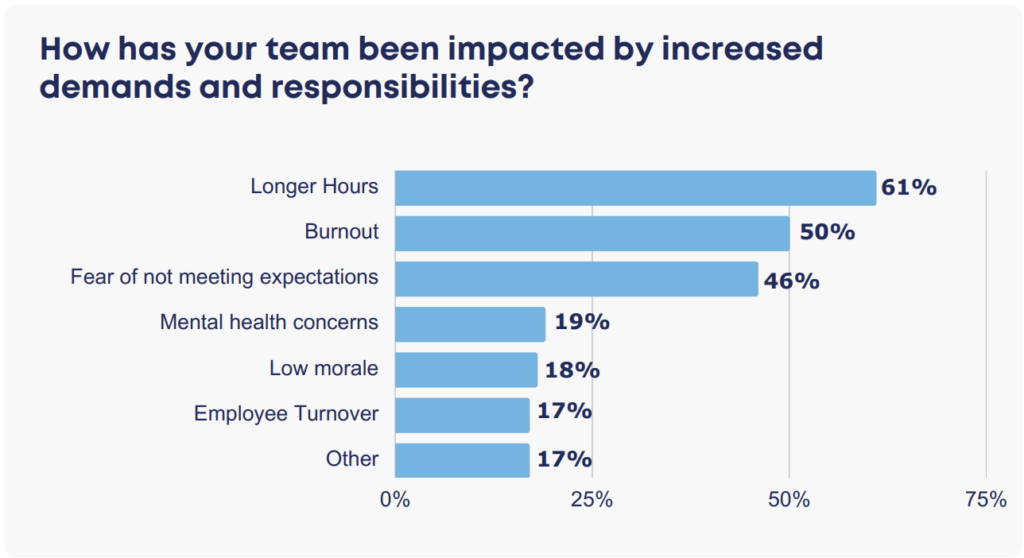
Not surprisingly, the resources cited by practitioners as needed most to be successful were larger headcounts, more financial resources to invest in community and priority issues, and greater focus or buy-in from executive leadership. Clearly, the continued increase of demands and responsibilities on corporate social impact professionals is having negative consequences on the work and the people doing it.
Giving and Volunteering Shifts
Growth in grantmaking budgets, which was a prominent trend since the pandemic’s onset, has decelerated. In 2023, merely 29% of companies increased their grantmaking budgets compared to the peak of 48% in 2021. This likely reflects the more uncertain economic environment, with the technology and manufacturing industries most negatively affected.
Interestingly, corporate foundations were less likely to experience decreases in their grantmaking budget, underscoring their potential for stability in turbulent times. Learn more about the benefits and operational requirements of implementing foundations and grants to your corporate philanthropic efforts.
Employee engagement budgets were also impacted less than grantmaking budgets with 25% of survey respondents reporting increased employee engagement budgets. This may indicate a heightened focus on recruiting and retaining top talent in a tight labor market.
In parallel, volunteerism experienced a surge, with 61% of respondents noting increased participation, consistent with our findings in this year’s 11th Annual YourCause Industry Report on CSR and Employee Engagement Trends. To foster this engagement, social impact professionals have expanded volunteerism options, emphasizing group and in-person opportunities while accommodating individual preferences.
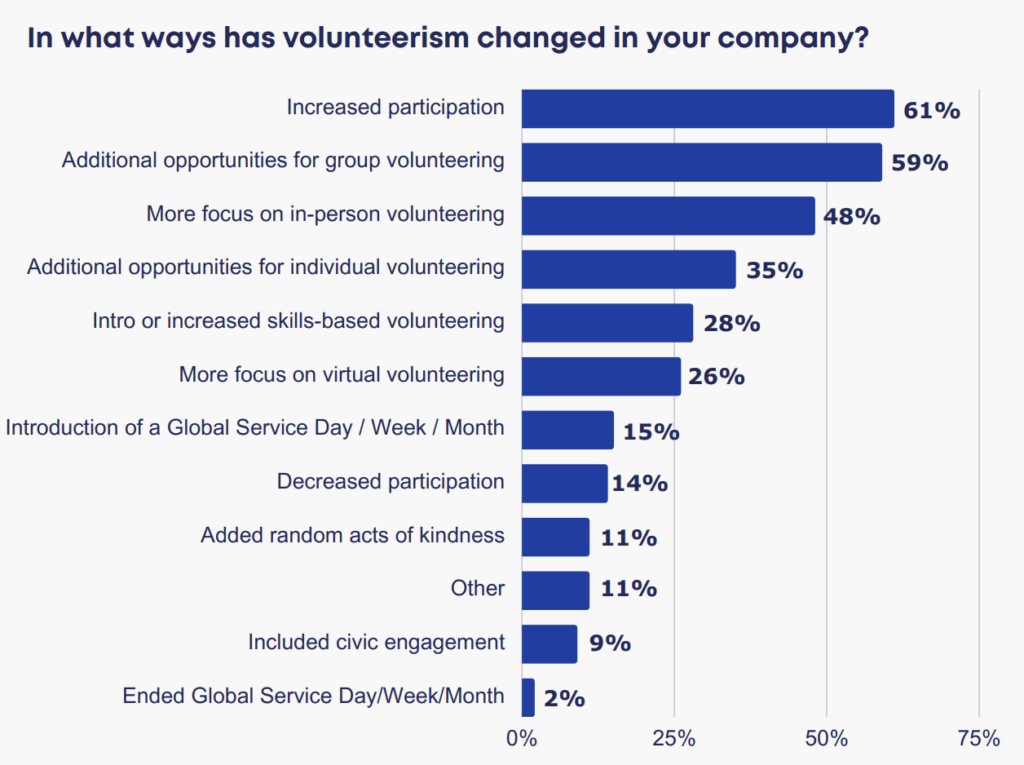
Evolving Priorities in Social Issues
When asked which social issues were priority areas for companies this year, the top three were environmental sustainability (56%), K-12 education (53%), and food insecurity (49%). With one-third of respondents indicating that the CSR and ESG functions reside within one department. the focus on environmental sustainability seems to be a natural progression of this cooperation and integration. Meanwhile, the challenging economy, cost of living increases, and inflation shine an even brighter light on food insecurity as a growing priority area.
Education has long been top-of-mind in the social impact space. With K-12 ranking as a larger priority than both higher education and early childhood education, it is clear that supporting students across communities during these formative years is of significant interest to companies.
EVERFI, also a part of the Blackbaud family, specializes in providing this missing learning layer in the classroom, allowing corporations to sponsor digital education in K-12 schools branded to your organization, and play a vital role in guiding students to achieve their full potential. Check out their amazing work here!
While racial justice and equity was highlighted as a priority by 44% of respondents, this does mean a decline from 50% of respondents last year and the 64% of companies that indicated it as a new priority in 2021.
Diversity and Representation in CSR Teams
Internally, this decrease in DEI commitments has been felt across industries. Research points to a reported 8% fall in job postings for DEI roles in 2022, as well as a disproportionate impact on people of color during corporate layoffs.
Specifically, within corporate social impact teams, this survey shows a concerning decline in the percentage of CSR and ESG department leaders of color, from 36% in 2021 to 19% this year. White women still dominate the profession, with less than 20% of respondents indicating BIPOC leaders of their teams. Data from the survey also confirms diverse CSR or ESG leaders correlate with a more diverse team of professionals.
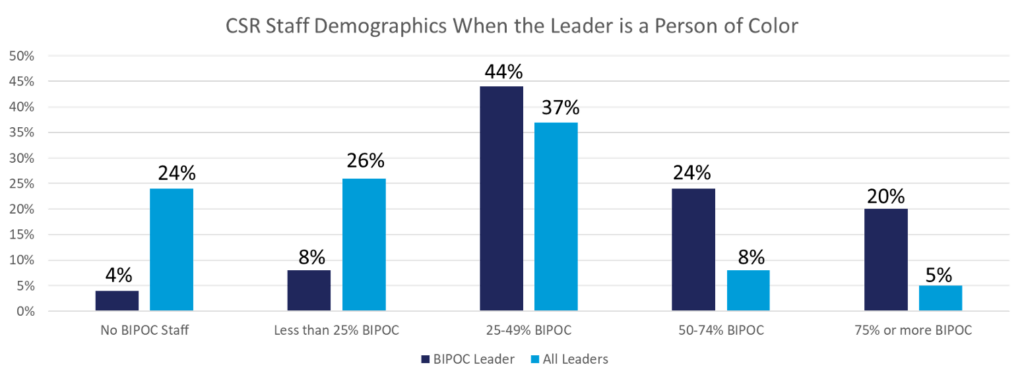
Review why DEI matters to your workplace culture and learn how to leverage employee resource groups to invest in diversity, drive engagement, and reduce turnover:
This survey’s findings provide valuable insights into the challenges and opportunities in the social impact landscape. The increasing responsibilities, resource limitations, shifting priorities, and diversity considerations underscore the need for adaptability, flexibility, and strong leadership commitment.

